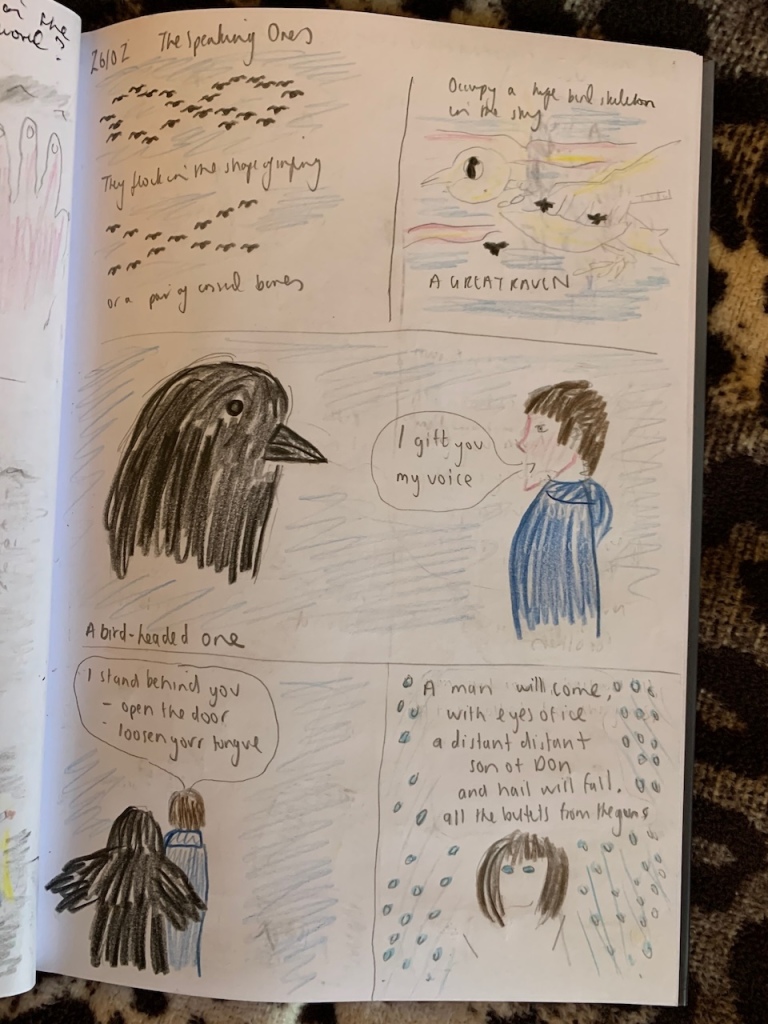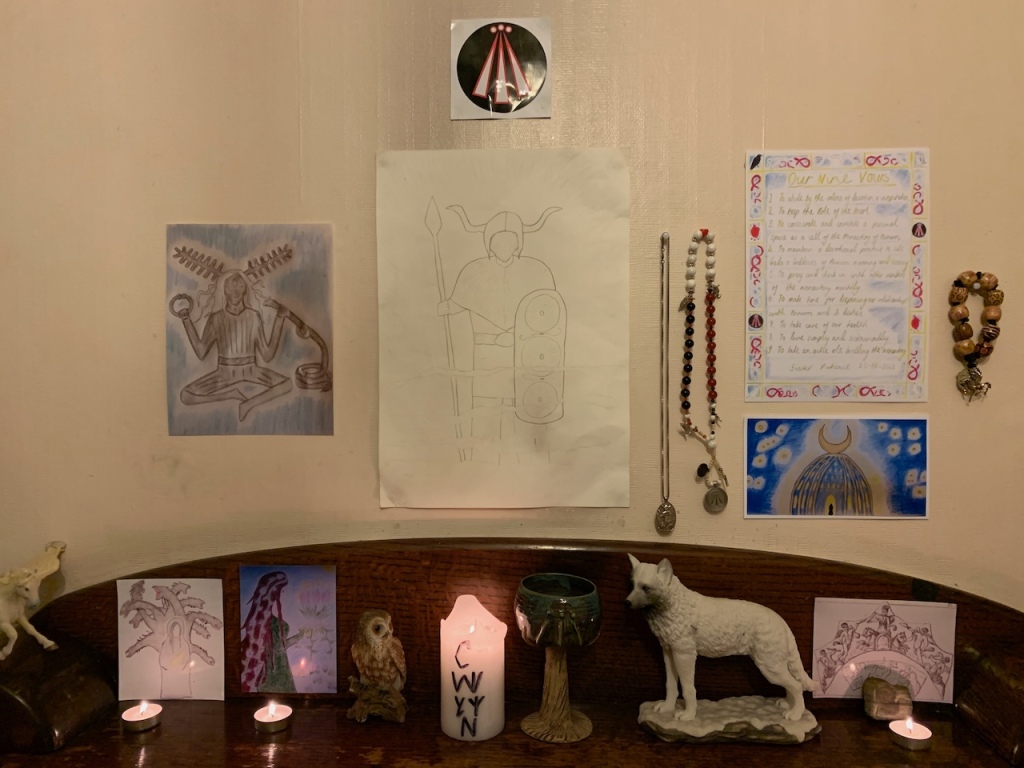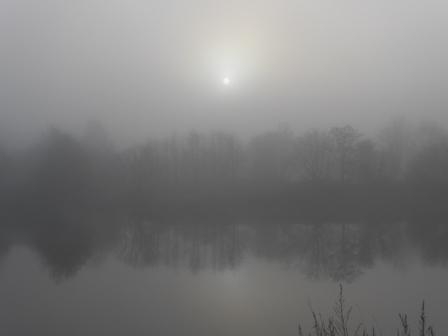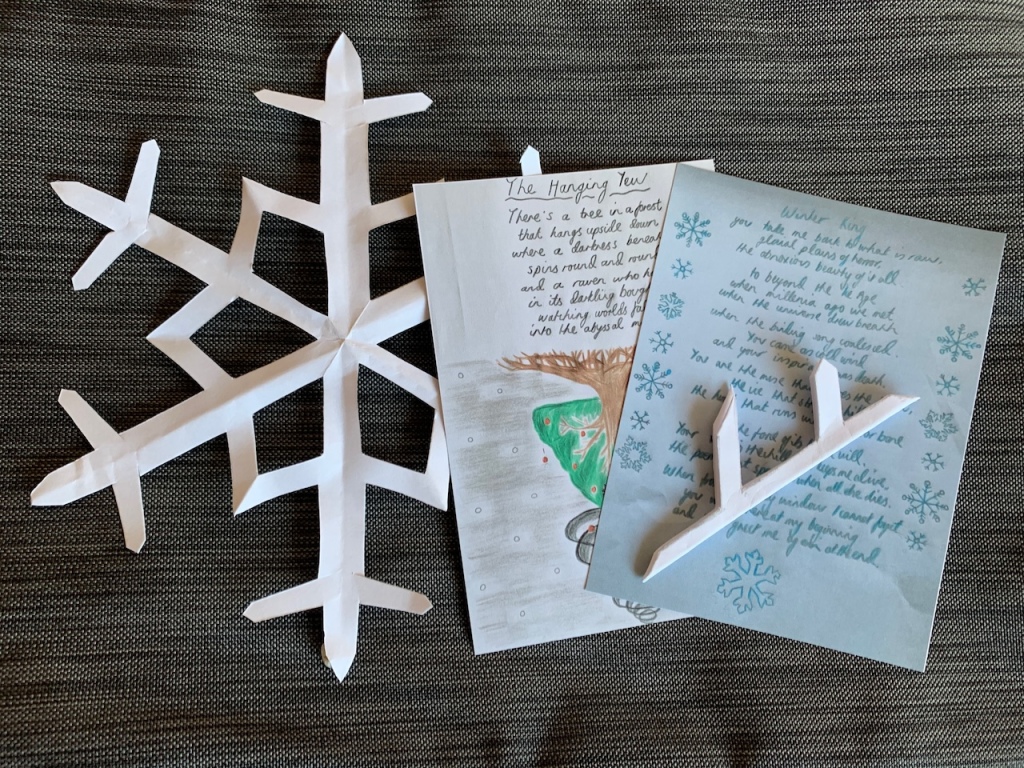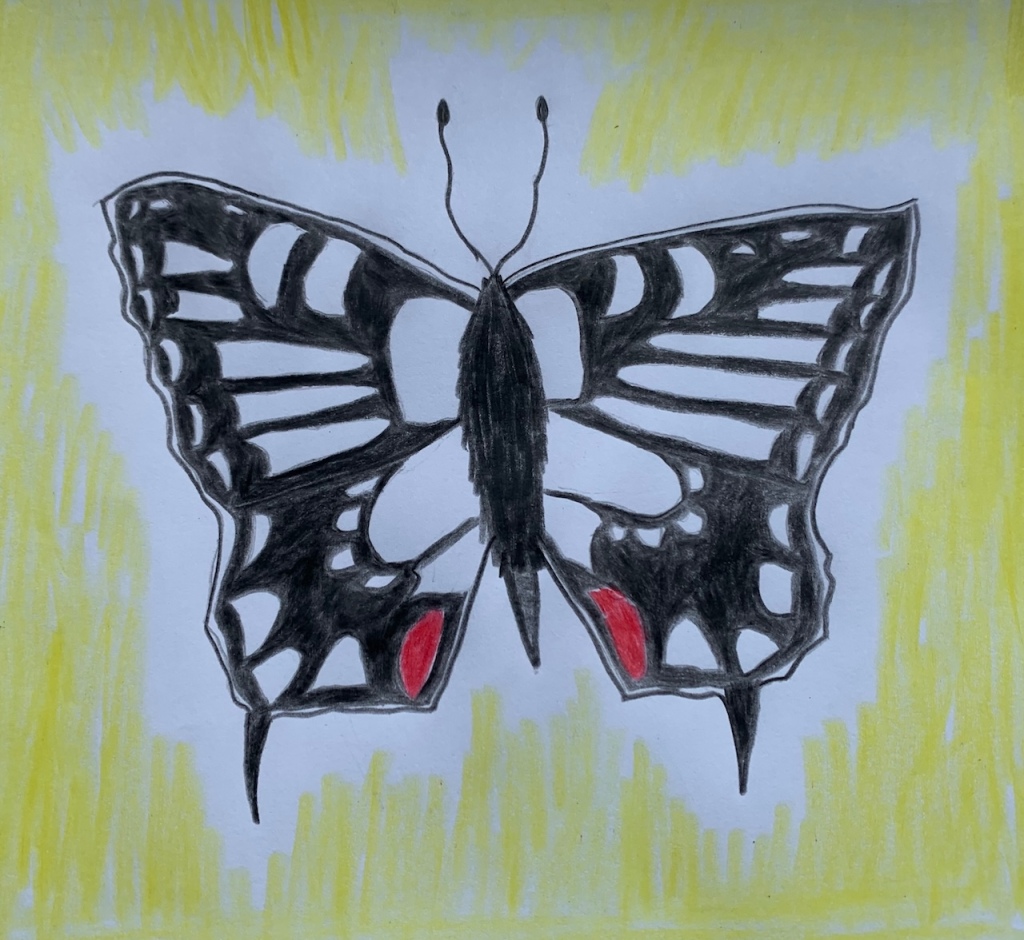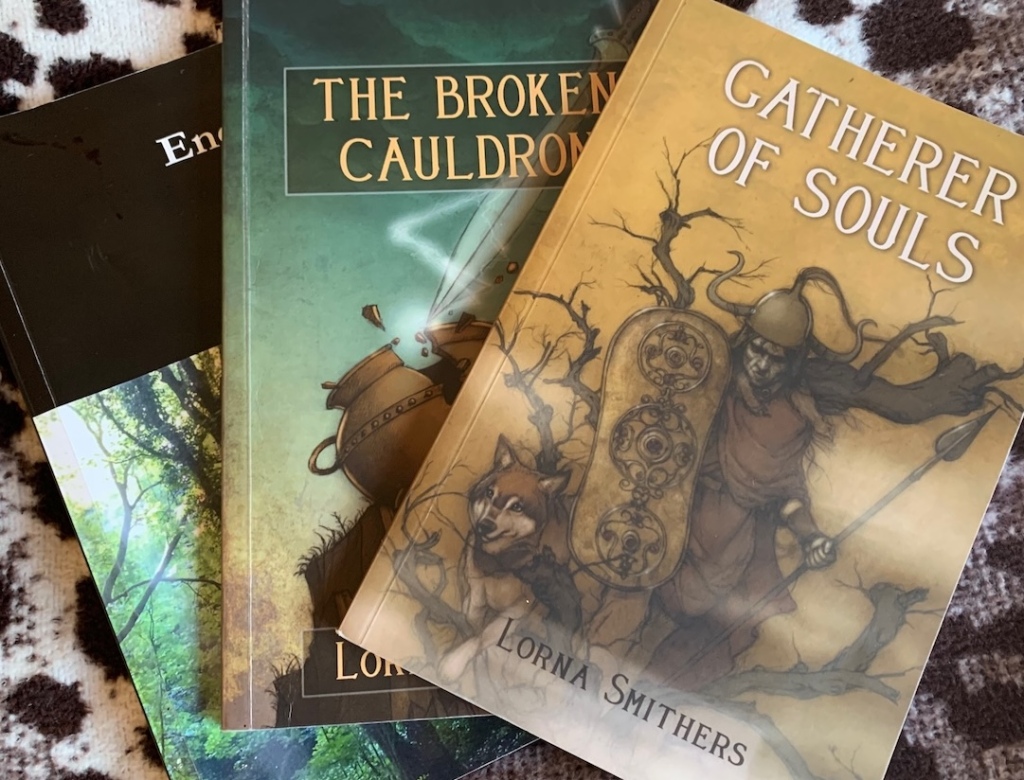At the Monastery of Annwn we do not have a set definition of the role of a monastic devotee or any rules except to follow the Rule of the Heart (1). Our ethos is egalitarian and our paths are fluid and led by the Gods and spirits. However, as I step into deeper commitment to becoming a nun of Annwn, I feel drawn to define my personal role.
What is a Polytheistic Monastic?
I will begin by citing the existing definition of a polytheistic monastic from Janet Munin in Polytheistic Monasticism: Voices from the Pagan Cloisters.
‘Monastics are those who have taken solemn vows to live centred on their relationship with one or more Holy Power. Anything which impedes or compromises that relationship is left behind or minimised as much as possible. They are renunciates, offering up wealth, social status, a conventional career, and family life on the altar of devotion.’
This is echoed and expanded upon later on:
‘The monastic’s life is focused on devotion to one or more Holy Powers, usually formalised with vows. Because of this focus, the monastic practices some agree of asceticism, removing distractions to spiritual life which are taken for granted by others: wealth acquisition, social life, social media consumption, etc.
‘The monastic lives according to a Rule or other structure which supports and reinforces their vowed life. Some of these are formal, breaking each day and season down into deliberate, repetitive order. Contemplation, prayer, study, worship, chores, rest and recreation all have a place and are engaged in deliberately, at the appropriate time. Others are less formal and detailed, but still serve as a mindful framework for the monastic’s daily life.’
Here we see, first and foremost, what defines a polytheistic monastic is leading a life of devotion centred on one or more Deities formalised by vows. For me this perfectly defines the heart of polytheistic monasticism. I’m also in agreement with the description of living by a rule and leading a structured life.
I agree a little less with the stress on renunciation. This is because renunication is a negative word. Its origins lie in the Latin renuntiare ‘protest against’. It carries overtones of negativity and against-ness and in my experience acting against most often causes undue conflict and waste of energy.
I propose instead a different word, ‘sacrifice’, which might sound more extreme with its connotations of offering one’s most precious things, desires, ambitions, at the most extreme end one’s life to the Gods. Yet, when we look at the root of the word we find a more positive sense than renouncing or giving up. The term originates from sacer ‘holy’ (2) and facere ‘to make, do’. Thus to sacrifice is to make holy all aspects of our lives for the Gods.
I do not agree, particularly when at present polytheistic monastics do not have the support of fellow devotees in a physical monastery, that it is healthy to renounce ties to family and friends unless they are insurmountable impediments to a monastic life. I think, instead, we should strive to sacredise these relationships and bring our devotion and inspiration into the lives of others.
I do agree that the rules and norms of modern capitalist Western society (ie. consumerism which brings about the exploitation of the earth and the underworld and social media which causes distractions that prevent communion with the Gods and the Deep) should be renounced because they are antithetical to the sacred and cannnot possibly be sacredised.
My personal working definition of a polytheistic monastic is as follows:
‘A polytheistic monastic leads a life centred on devotion to one or more Deities formalised by vows. This is supported by a rule and the order and discipline of daily, monthly and seasonal practices including prayer, meditation and ritual. It is a life of sacrifice, in the sense of making holy all acts and relationships as an offering to the Gods.’
What is a Monastic Devotee of Annwn?
When I founded the Monastery of Annwn in 2022 its main purpose was to provide ‘a virtual space and place of sanctuary for those who worship and serve the Gods and Goddesses of Annwn’.
This has been achieved. We number twelve members with several living under vows. We communicate through a private forum and have a monthly online check-in and run open online meditations and seasonal rituals.
We are bound as a monastery by our Nine Vows and the Rule of the Heart, along with daily and monthly prayers (many of which have been co-written and include a new moon prayer and a novena practice over the full moon) and our ritual year based around the mythos of our patron God, Gwyn ap Nudd.
Where Annuvian monasticism differs from more traditional forms is its combination of contemplative and meditative practices with the shamanic and ecstatic practices of spiritwork and journeying to Annwn. Devotional creativity, questing and sharing awen ‘inspiration’, is also central.
Whereas communication with underworld Gods and spirits and ancestors and artistic expression along with physical exercise are banned or restricted in other traditions these are encouraged in our monastery as sacred.
My personal working definition of a monastic devotee of Annwn is as follows:
‘A monastic devotee of Annwn leads a life centred on devotion to one or more Gods and Goddesses of Annwn formalised by Nine Vows and the Rule of the Heart. Life is structured by daily and monthly prayers and seasonal rituals. By a balance of contemplative and shamanic practices (3) sacred relationships are formed with all beings in the world and the spirits of the Deep. Each devotee is an awenydd, questing awen, and sharing it in community.’ (4)
What is my role as a Nun of Annwn?
I see my role as a nun of Annwn as having many aspects. These have shown themselves as I have walked my path, from serving an apprenticeship to Gwyn as an awenydd, taking lifelong vows to Him, to becoming a nun.
Devotee – At the heart of my path lies my devotion to Gwyn and I also venerate His family and my local river Goddess and spirits and the ancestors.
Inspired One – I first served Gwyn and other Brythonic deities and the spirits of my local landscape as an inspired poet and storyteller bringing their little-known myths and tales back to the world. This has changed slightly since I became a nun for I now primarily create devotional poems, songs and art.
Spiritworker – When I met Gwyn He taught me to journey in spirit with Him to Annwn and introduced me to the spirits of His magical realm. This is an ongoing process of building relationships and deepening into mystery. I also strive to build good relationships with the spirits of my home, garden, and local land. My ancestral guide is Orddu. With her I am learning to speak with the voices of spirits as recorded by Gerald of Wales amongst the awenyddion.
Wisdom-Keeper – This refers to my researching and sharing Annuvian lore.
Strong Vessel – For the strength to hold the awen I maintain the disciplines of a regular meditation practice including breathwork and physical exercise such as running and strength training along with yoga which combines both.
Guide of Souls – This is a newer role which Gwyn told me I must step into when I took initial vows. I have already been fulfilling it and continue to do so by my writing. More formally I have begun offering one-to-one soul guidance sessions for other people. I occassionally act as a guide to those passing through the Otherworld and between worlds too.
Sacristan – I first came across this term in the work of of fellow polytheistic Danica Swanson who runs Black Stone Sanctuary (5) but only recently realised it fits my vocation. For me it refers to someone who tends sacred spaces. I see it to include my altars and monastic cell and to be expandable to my home and garden (which I am striving to treat as a monastery). I also see it to relate to my work building and administering the Monastery of Annwn and to co-organising and often leading rituals and meditations.
In each of these roles I serve Gwyn and the Spirit of the Monastery. Although one or more might come to the forefront at certain times and others be backgrounded they are all inspired by the breath of awen and heartbeat of Annwn. I expect there to be more challenges and changes as I grow into the role.
(1) To follow our hearts in alignment with the heart of Annwn.
(2) When I saw sacre translated as ‘holy’ it made me smile as Gwyn’s name means ‘white, blessed, holy’ and I like to think when we sacrifice, when we make sacred, we make things a little more Gwyn.
(3) I first saw the terms ‘contemplative and shamanic’ used together to describe the way of Mycogenous Dionysus by Dver and thought how well this fits with Annuvian monasticism too. https://forestdoor.wordpress.com/2023/10/02/mycogenous/
(4) Community can be human and / or other-than human.
(5) https://blackstonesanctuary.substack.com/
